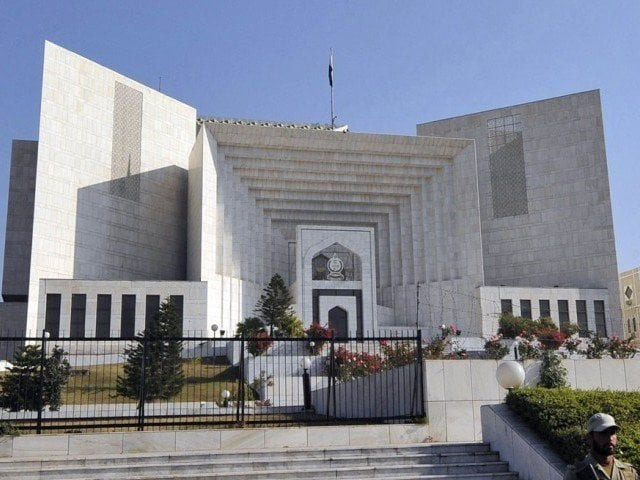2018: Supreme Court emerges as most powerful institution
The outgoing year proves to be the toughest one for politicians

The apex court has not only disqualified several lawmakers on different charges but also expended its jurisdiction to examine their qualification under Article 62 (1) (f) of Constitution.
Adjudication of these cases has had a profound impact on national politics. Critics believe that SC's adjudication on political cases has further weakened the civilian supremacy. But one section of society claims that it is the first apex court that unearthed corruption of the political elite.
On the first day of the outgoing year, the apex court took up 13 constitutional petitions, challenging the Elections Act of 2017, which paved the way for Nawaz Sharif to become head of the PML-N after his disqualification by virtue of the apex court’s ruling on July 28, 2017. Interestingly, all major parties, including the PPP, were the petitioners in that matter, wherein the SC disqualified Nawaz as party head. In view of that verdict, PML-N candidates contested the Senate election as independent ones.
Later, suo motu was taken on the victory of senators, who were holding dual nationalities. The matter remained pending for several months. In October, when the PTI got majority in the Punjab, the apex court disqualified two PML-N senators Haroon Akhtar and Sadia Abbasi for holding dual nationalities. After their disqualification, the PTI was successful in getting both seats in the Punjab province.
SC emerges as most powerful institution
Subsequently, the apex court has also played a key role in holding the general elections on time. On June 5, the apex court restored almost all information omitted in the nomination forms approved by parliament last year.
Hearing a petition filed by former National Assembly speaker Ayaz Sadiq against the Lahore High Court (LHC) decision to redraft nomination forms, SC’s five-judge bench had directed the ECP to prepare draft of missing affidavit. Interestingly, the final verdict on the amendments in election laws is still awaited. However, on the basis of June 5 order, numbers of candidates were disqualified from contesting the general elections.
Before general elections, the apex court took a suo motu notice over alleged Rs42 billion fake accounts scam wherein the PPP leadership Asif Ali Zardari, Faryal Talpur and Bilawal Bhutto Zardari have been declared accused by the Joint Investigation Team (JIT). The matter is still under adjudication.
Likewise, the top court has further developed jurisprudence on disqualification under Article 62 (1) (f) of the Constitution in outgoing year.
The larger bench justified lifetime disqualification of parliamentarians under Article 62 (1) (f) of the Constitution. Expanding its jurisdiction, the apex court held that it can initiate suo motu proceedings to examine the qualification of lawmakers.
Likewise, SC judge Justice Qazi Faez Isa in Sheikh Rashid’s disqualification case raised serious questions over the jurisprudence evolved in view of Panama Papers verdict regarding the disqualification of lawmakers, calling upon the apex court to make every effort to dispel any impression that different persons are treated differently.
In October, the apex court in Khawaja Asif case finally laid down an ‘objective criterion’ to test the honesty of a lawmaker by declaring that Article 62(1)(f) could not be applied to every omission or non-disclosure of assets. Later, the court set aside the lifetime disqualification of PTI Balochistan chief Yar Muhammad Rind in the fake degree case, declaring that such disqualifications must be based on oral or documentary evidences and not presumptions
Likewise, contempt of court proceedings against PML-N leaders remained dominant in the apex court in the ongoing year wherein the court disqualified/ convicted three PML-N lawmakers Talal Chaudhry, Danyal Aziz and Nehal Hashmi.
Cases under Anti-Terrorism Act were also registered against a few PML-N and PPP workers for using abusive language against the top judge. Due to coercive action against political workers, top court’s position in the eyes of political workers is becoming controversial. Same can be witnessed on social media.
Despite submission of unconditional apology, top court also sent behind the bars those police officers who had manhandled former CJ Iftikhar Muhammad Chaudhry in March 2007. But the court did not take action against generals, who took hostage the former chief justice at GHQ at that time.
Likewise, the superior judiciary also ousted a high court judge over the charge of misconduct after five decades.



















COMMENTS
Comments are moderated and generally will be posted if they are on-topic and not abusive.
For more information, please see our Comments FAQ